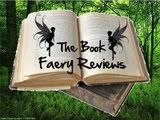For instance, the very first article I read explained how to write a proposal and approach literary agents without ever having done any writing whatsoever. Only when a buying party was attracted, the book would be written, almost as an afterthought. Now you may call me naive, but to me as a creative person this seems like the world turned upside down.
Yes, as a writer I want to be read, so of course I want to sell my books. But they have to be my words, my stories, not the stories I think agents and sales managers are going to like because they think they can sell them.
When you are writing to sell, you should probably skip this article. When you are like me and are writing from the heart, writing because you have stories to tell, you may find some of my tips useful.
And by the way: I actually believe that in the end, writing from the heart will yield a better harvest than writing for a buck - if not in a monetary sense, than at least in satisfaction, joy, and recognition from like-minded souls.
Writing tips for the high-sensitive writer
I hardly ever suffer from the dreaded writer's block, and after finishing my first 444 page novel in one year, I began to wonder why that was. I have decided it is because I am writing from the inside out. I'm not writing from the head - I'm writing from the heart. I let the stories tell themselves.
When writing from the heart, writer's block becomes a thing of the past - an obstacle that only surfaces when you start writing because you have to, not because you want to. But even when you write because you love it, you may encounter blockages and obstacles on the way.
So, here are some writing tips for writing from the heart and overcoming those obstacles.
* Write the story you want to read. Choose a setting you would like to walk around in - however gruesome or dangerous it might get sometimes. Choose a storyline you can get excited about, create conflicts for your characters you can identify with. Write characters you love - or love to hate.
* Turn off the chatter.The endless chatter of the mind can be a great distraction to creative flow. If, like me you have no patience for meditation, there other ways to silence the mind and gain inspiration at the same time. Music, art, movies that inspire you, physical activity like dance, sports, yoga, etc. can all serve to still internal chatter and get you into 'writing mode'.
* Stuck in a rut? Take a walk. Sometimes, sitting behind the computer, wondering where the story wants to go, you may get stuck in your head and the story no longer flows. When writing from the 'rut', you may find your dialogue getting stiff, your characters behaving out of character. Stop and take a walk! Get your body moving. Go do some grocery shopping. Many of my best story ideas came when cycling, or doing the dishes.
* Let's have some music! A great way to get back into the flow, and experience your story from the heart, is choosing some music that fits the atmosphere, the feel of your story or scene. Use an MP3-player, choose the appropriate music and lay down on the couch. Relax. Now, if your story were a movie, this would be the score to your movie. See what images pop up when you listen - don't try and force it, just let them flow naturally from the music and the mood. For instance, when writing medieval battle scenes, I like to listen to Hans Zimmer's 'Gladiator'.
* Let the story tell itself - go to the movies! To take it one step further, while listening to your score, you can step into the movie. You might, for instance choose a moment in the story where there is conflict, where things are moving, or about to get exciting. Step in and take a look around. It's like stepping into a time machine that can transport you to any moment in time. What is it like to be there? How does it feel? How is the overall mood? You may (and probably will) note things you had not noticed before, when you were sitting at your desk: the atmosphere, the weather and how it effects the mood, little background details that can give your story more 'backbone', etc.
* Let your characters speak for themselves. When you step into the story, you may choose one character, step into that person in your imagination and experience the scene from his/her point of view. Identify with them. What do they feel? What do they think? How do they experience their conflict? This will help you get to know your characters intimately and will truly put flesh on their bones, so to speak. It will help you write them as three - (and sometimes more) dimensional characters that live and breathe, and most importantly, feel. Alternately, you could choose a general point of view, the storytellers' perspective.
I hope you find these tips useful. They may not help you sell stories. But they may help you write stories that are authentic and alive - the kind of story I definitely would want to read!
Read the article on EZine!

By Wendy Gillissen, author of Curse of the Tahiéra, the engrossing new fantasy novel













Inspiring tips indeed!
ReplyDeleteThank you Chandrika!:)
ReplyDelete